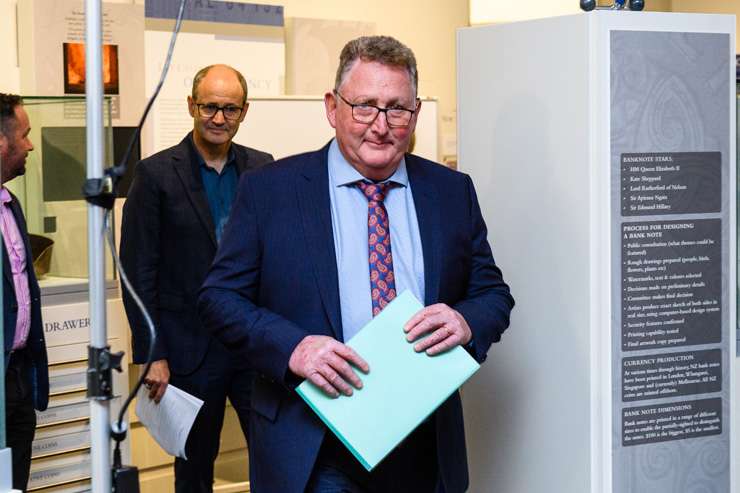Lower than expected inflation for the first quarter of the year is being greeted as a pleasant surprise with some experts saying there could be a slow pick-up in the housing market in coming months.
However, Infometrics chief executive Brad Olsen says people should be under no illusion the inflation battle is over.
New Stats NZ data shows the rate of inflation for the year to March, which is lower than the 6.9 to 7.2% economists were expecting.
Olsen says that’s encouraging but 6.7% is still “far and away” above what the Reserve Bank wants to see – the Reserve Bank’s inflation target is between 1 and 3%.
Start your property search
He points out one of the key drivers of the slower inflationary profile for the quarter was tradeables inflation, particularly fuel and international airfares, but he says domestic-based inflation has accelerated to its fastest annual pace on record.
Interest rate rises are still to come, he says, even though most of the “heavy lifting” is over.
“The Reserve Bank will still not be comfortable with the numbers as they are set and I don’t think they’re done”.
Another Official Cash Rate hike does not necessarily mean higher interest rates for homeowners, though, with increases already priced in.
And Olsen says according to some measures house sales are at their lowest since the 1980s, which means banks need to do enough business to keep operating.
“That means they won't be nearly as gung-ho with raising interest rates. They might have to wear some of those increases to keep their mortgage book at a big enough level.”
Read more:
- Tony Alexander: 1% boost to our population requiring 19,000 extra houses
- 'Extreme discount' penthouse falls short at auction - but will buyers now go to $550K?
- 'There are bucket loads': First home buyers behind quarter of all house sales
The lower than expected inflation result was “pleasantly surprising”, he says, “but we cannot kid ourselves that the inflation battle is won”.
“That's the worry, that people look at this and go ‘we've done it’. We haven't done it. We're on the right path but it's not fixed yet.”
Kelvin Davidson, chief economist with CoreLogic, says it feels like the inflation peak has passed and that’s good news.
“It's still high, it's real pressure on finances, it's still higher costs people are paying but at least that rate of growth might be slowing down.”
The Reserve Bank will likely still push up the OCR next month but Davidson thinks that is probably the end of the cycle.
He also says the next OCR hike has already been priced into mortgage rates which are unlikely to go higher.
But new borrowers are still faced with a one-year fixed mortgage of around 6.5% and existing borrowers on low rates still have to roll over onto higher rates.
“You can look at it and say at least it's not going to get worse but you also have to acknowledge it's not cheap now.”

Reserve Bank of New Zealand Governor Adrian Orr in February 2023. He has indicated a cash rate peak of 5.5%. Photo / Getty Images
Davidson does not think sentiment will suddenly snap back in the housing market but says once people are reasonably sure rates won’t get worse they may decide to get on with property decisions.
“It's another thing to add to a growing list of reasons to think this (housing) downturn is about to end.”
Chris Farhi, head of insights for Bayleys, thinks the lower-than-expected inflation results are a positive for both the housing market and the commercial market.
More positive commentary with less “doomsday” scenarios helps with sentiment, sentiment is an important driver in the property market, he says.
But any pick up in the market is likely to be a slow one: “It's hard to see the factors that would lead to another runaway market and the data today is really just a positive tweak to the situation rather than a massive completely different outcome than everyone was expecting.
“I think what it's more likely to lead to is a level of stability rather than going straight into boom mode.”

Valocity head of valuations James Wilson says the inflation rate drop may give the market a positive kick. Photo / Fiona Goodall
James Wilson, head of valuation for OneRoof’s data partner Valocity, says it’s unlikely any would-be borrower will see big changes in the rates they could be getting so there won’t be an immediate impact, however, positive sentiment may begin to gain momentum.
“Recently, we've had some data sets begin to show signs of maybe we're approaching the bottom of some key markets.
“You combine that with an inflation result like that, and granted it's only one, it's by no means a ‘we've turned a corner’ type signal just yet, but when you combine it mindsets begin to shift towards a ‘well, have we seen the worst?’ so I think sentiment gets a bit of a positive kick.”
A result could be investors, who have been on the sidelines, begin to take a more active position in the market.
“I think it's too early to trigger a widespread change in mindset but any positive signals like that begins to, slowly at first, shift that mindset dial.”

















































































